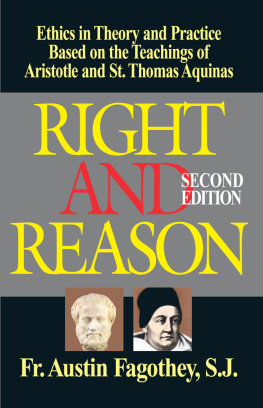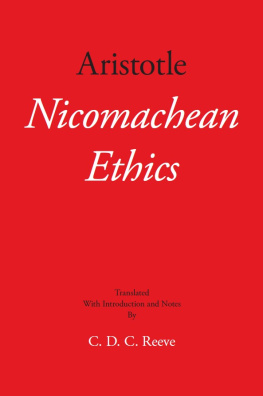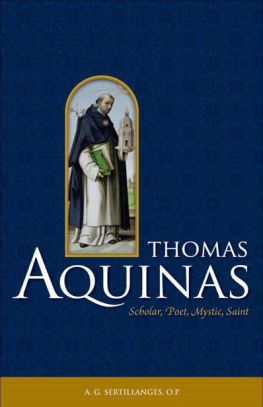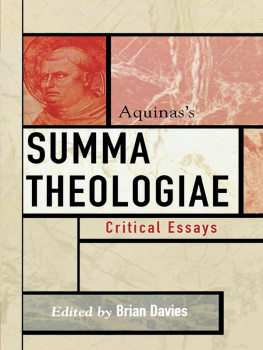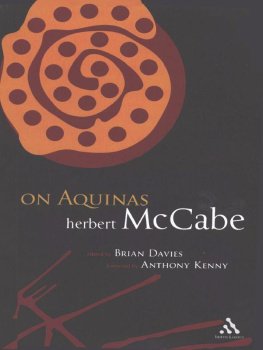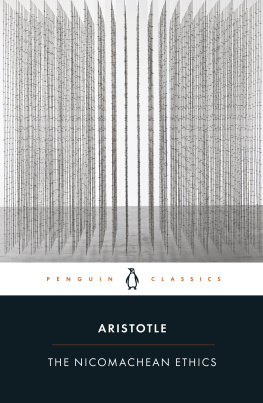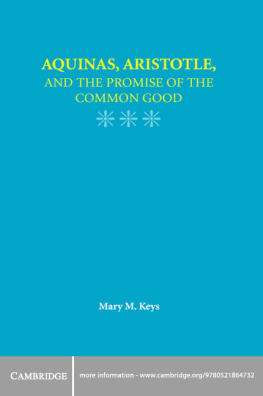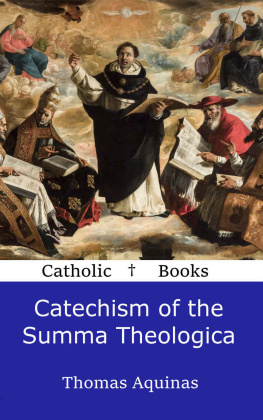Fr. Austin Fagothey - Right And Reason: Ethics Based on the Teachings of Aristotle & St. Thomas Aquinas
Here you can read online Fr. Austin Fagothey - Right And Reason: Ethics Based on the Teachings of Aristotle & St. Thomas Aquinas full text of the book (entire story) in english for free. Download pdf and epub, get meaning, cover and reviews about this ebook. year: 0, genre: Science. Description of the work, (preface) as well as reviews are available. Best literature library LitArk.com created for fans of good reading and offers a wide selection of genres:
Romance novel
Science fiction
Adventure
Detective
Science
History
Home and family
Prose
Art
Politics
Computer
Non-fiction
Religion
Business
Children
Humor
Choose a favorite category and find really read worthwhile books. Enjoy immersion in the world of imagination, feel the emotions of the characters or learn something new for yourself, make an fascinating discovery.
- Book:Right And Reason: Ethics Based on the Teachings of Aristotle & St. Thomas Aquinas
- Author:
- Genre:
- Year:0
- Rating:4 / 5
- Favourites:Add to favourites
- Your mark:
- 80
- 1
- 2
- 3
- 4
- 5
Right And Reason: Ethics Based on the Teachings of Aristotle & St. Thomas Aquinas: summary, description and annotation
We offer to read an annotation, description, summary or preface (depends on what the author of the book "Right And Reason: Ethics Based on the Teachings of Aristotle & St. Thomas Aquinas" wrote himself). If you haven't found the necessary information about the book — write in the comments, we will try to find it.
Fr. Austin Fagothey: author's other books
Who wrote Right And Reason: Ethics Based on the Teachings of Aristotle & St. Thomas Aquinas? Find out the surname, the name of the author of the book and a list of all author's works by series.
Right And Reason: Ethics Based on the Teachings of Aristotle & St. Thomas Aquinas — read online for free the complete book (whole text) full work
Below is the text of the book, divided by pages. System saving the place of the last page read, allows you to conveniently read the book "Right And Reason: Ethics Based on the Teachings of Aristotle & St. Thomas Aquinas" online for free, without having to search again every time where you left off. Put a bookmark, and you can go to the page where you finished reading at any time.
Font size:
Interval:
Bookmark:
Right and Reason
Ethics in Theory and Practice
Fr. Austin Fagothey, S.J.
| Imprimi Potest: | Carroll OSullivan, S.J. |
| Nihil Obstat: | Benedict M. Blank, O.P |
| Imprimatur: |  John J. Mitty John J. Mitty |
Archbishop of San Francisco |
Second Edition copyright 1959 by The C. V. Mosby Company, St. Louis.
Previous edition copyrighted 1953.
Library of Congress Control No.: 00-131559
TAN Books
Charlotte, North Carolina
www.TANBooks.com
2000
PREFACE

The point of view adopted in this book is that of the Aristotelian-Thomistic synthesis, the living tradition of the perennial philosophy, that applies the wisdom of the ancients, tried and proved in the crucible of historical experience, to the discoveries and problems of modern life. However, the author does not regard the Aristotelian-Thomistic system as such an historical crystallization that all thinking must henceforth cease. He has incorporated whatever seems worth while in later speculations, not in a spirit of irresponsible eclecticism, but as a genuine development, extension, clarification, or application of Aristotelian-Thomistic principles.
Because ethics is not the logical place to begin the study of philosophy, it will be presupposed that the student has already had some training in the basic concepts of the Aristotelian-Thomistic system. For this reason no effort has been made to explain or demonstrate the presuppositions of ethics. To do this adequately would require the inclusion of almost the whole of philosophy in this one volume; to do it inadequately would be worse than useless. However, the student lacking previous philosophical training may be able to accept these presuppositions provisionally and to await their demonstration in another course.
Ethics is a part of philosophy, and an effort has been made to preserve the philosophical approach throughout. Because ethics is practical philosophy, some excursion into the domains of sociology, economics, and political science is inevitable, especially in applied ethics, but the author believes that even the most concrete problems can be viewed in the true spirit of philosophical inquiry.
As a rule the problem method has been used. This consists in introducing one of the major problems of ethics, explaining how it arose and why it is a problem, giving the main schools of thought on the subject with sufficient historical background, stating the arguments for and against each proposed solution, weighing the arguments against one another, and finally resolving the problem in the light of the evidence and reasoning involved. Of course, each problem will result in a thesis to be maintained, but the author thinks that the questioning approach is a better instance of the philosophical attitude than an immediate launching into the demonstration of a set thesis. For this reason a syllogistic argument is not first stated and then explained and defended, but is used rather as a summary of the whole investigation.
Fairly numerous quotations from the classical philosophers are interspersed for the purpose of letting each philosopher explain his own position as well as of encouraging the student to explore some of these sources for himself. Reading lists at the end of each chapter are meant by way of suggestion both to teacher and student and make no pretense of being exhaustive. As a rule, textbooks are omitted from these lists, not because they are unimportant, but because they are so obvious.
An endeavor has been made to keep the language as nontechnical as possible. Ethics deals with the everyday activities of human life and should be expressible in commonly current terms. But no science (and ethics is one) can wholly dispense with terminology. The author has tried to avoid long classifications and enumerations, distinctions and subdistinctions, whose application is not immediately apparent, and to defer the explanation of technical terms to the moment when their use is necessary. Since so many college students of today lack the classical training of former generations, the teacher is often faced with the dilemma of achieving technical exactness in his words at the cost of being totally incomprehensible to the class or of using familiar language with some sacrifice of terminological precision. The author has tried to steer between these two pitfalls.
No textbook can take the place of the living teacher, whose personal inspiration is a stimulus to learning, but his fleeting words need to be supplemented by a more lasting record than the hasty notes the student can scribble during class. No textbook can take the place of solid reading in the great masters, a task which this text supposes and encourages, but unfortunately the great masters did not usually write with a clientele of college undergraduates in mind, and at least the older among them had no prophetic vision of the specific problems facing the modern world. So it seems that there is still place for a textbook.
This second edition is a very changed book. Many rearrangements have been made for a better pedagogical sequence. The topics of happiness and the end of man have been re-expressed to clarify the philosophical approach and distinguish it from the theological. Reflections on some modern schools of thought, such as logical positivism, relativism, and existentialism, have been introduced. The norm of morality has been rewritten and given what the author thinks an original presentation. The nature of obligation has been re-examined and made more consistent with the general intellectualist approach adopted throughout. A unique feature is the treatment of society and its chief forms, the family and the state, before considering property and economic life. The chapter on Society has been enlarged, and a new chapter on Social Order has been introduced. The treatment of positive law has been postponed until the state has been studied. The consideration of justice has been expanded and that of merit omitted. When possible, the terminology has been simplified to put more emphasis on the problem than on the language. Many verbal changes, some of them seemingly trivial, have been made where experience in the classroom has uncovered general student misunderstanding. The reading lists and bibliography have been brought up to date. Though the book bulks a little larger, there should be a saving rather than an increase in teaching time, since the book can be read more easily out of class and more class time can be used for discussion.
The author wishes to express his thanks to the many who have assisted him with the first and second editions of this work, especially to his colleagues in the Philosophy Department at the University of Santa Clara. He owes a particular debt to the late Father William Donnelly, S.J., without whose help the first edition could not have been written, and also to Father Joseph Farraher, S.J., and Father Robert Dailey, S.J., professors of moral theology at neighboring Alma College, Los Gatos, California. He is grateful to Father John Mootz, S.J., Father Andrew Boss, S.J., Father Richard Mulcahy, S.J., Father Robert McMahon, S.J., and Father Cornelius Lynch, S.J., of the University of San Francisco; to Father Stephen Earley, S.J., Father George Lucy, S.J., and Father Robert Taylor, S.J., of Loyola University of Los Angeles; to Father William Gaffney, S.J., and Father Clifford Kossel, S.J., of Mount St. Michael's, Spokane; and to many others for their criticisms, advice, and encouragement. He is grateful also to all his students, whose questions and answers, discussions and difficulties, insights and gropings contributed more than they knew.
Next pageFont size:
Interval:
Bookmark:
Similar books «Right And Reason: Ethics Based on the Teachings of Aristotle & St. Thomas Aquinas»
Look at similar books to Right And Reason: Ethics Based on the Teachings of Aristotle & St. Thomas Aquinas. We have selected literature similar in name and meaning in the hope of providing readers with more options to find new, interesting, not yet read works.
Discussion, reviews of the book Right And Reason: Ethics Based on the Teachings of Aristotle & St. Thomas Aquinas and just readers' own opinions. Leave your comments, write what you think about the work, its meaning or the main characters. Specify what exactly you liked and what you didn't like, and why you think so.

